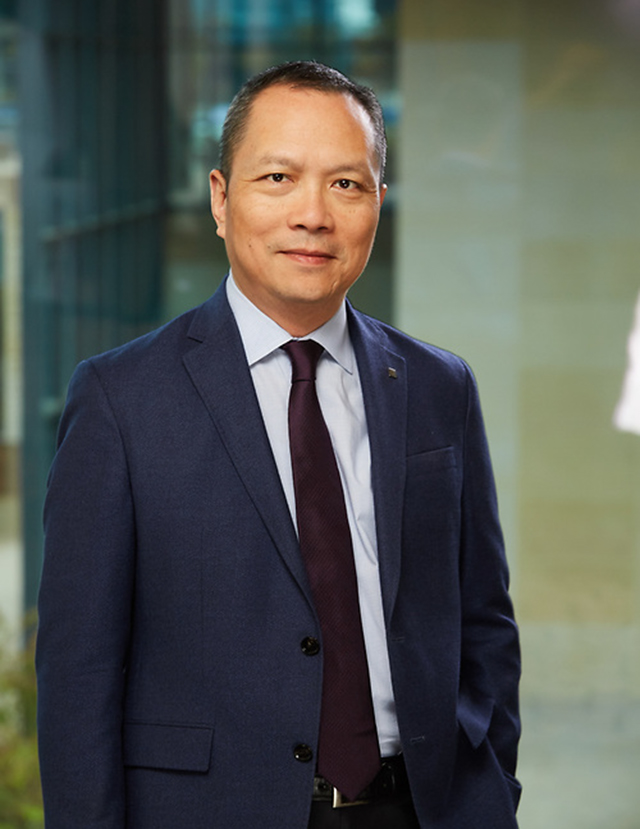|
Getting your Trinity Audio player ready... |
Ron Chu has been at Toyota for over twenty-one years, serving in a wide range of leadership roles in the accounting, tax, and finance functions. Today, he’s the group vice president of global internal controls at Toyota Motor Corporation, a global position responsible for enhancing internal controls for global compliance. As he details his decades-long career at the company, he explains how he’s been able to be so successful for so long.
“I’ve always believed that a combination of learning agility and intellectual curiosity is the foundation for going very far,” Chu says. “If someone doesn’t have those things, it can be really hard to stay motivated. But if you do have them, they can be the catalyst for continuing to pursue something greater in the long term. It allows me to see things from different perspectives.”
That belief not only drove Chu’s ambitious move to the US from China decades ago but also the years that ensued, which saw him garner an unparalleled international business and financial expertise. In his global role that deals exclusively with countries outside the US, he applies those experiences toward communicating with different cultures, a task he says requires a great deal of self-awareness and empathy.

“At Toyota, we empower our subsidiaries in other countries, so you always need to be cognizant of that company’s culture in that particular country so you can be effective,” he says. “You need to have in the back of your mind what others need and what their perspectives are. Think about what’s in it for them and talk in their language.”
Though he went on to be able to communicate with different kinds of people from around the world, that’s a far cry from how he started his tenure in the US. His tax and accounting career began in his thirties as a non-native, English-speaking immigrant who left China in 1985. After obtaining a master’s degree in taxation and a post-baccalaureate certificate in accounting, he was sponsored by KPMG to work in Los Angeles and Silicon Valley.
“As a non-native English speaker and an immigrant who started in this field late, with one of the premier professional service firms, the obstacles and the odds were staggering,” he reflects. “How do you fit in? Do your clients and your coworkers accept who you are?”
“If you can make sure people feel good about what they do, you’ll get the most out of them. Intensity is only for the short run, while passion can be sustained.”
Ron Chu
It was very frustrating at the beginning as he navigated a new culture and a new language. But as he looks back, he realizes that his unique journey as an immigrant gave him an edge that continues to propel him forward. It instilled in him a persistent spirit to succeed that drove him to become a senior manager at KPMG. In that role, he honed his communication skills and learned how to be professional, manage time, multitask, and be efficient. He also learned the value of staying with a professional service firm for just short of eight years.
“You can learn how to service a client, manage a project, behave as a leader of a team, how you manage budgets, and get clients to respect you by adding value,” he explains. “You won’t be able to do that until you progress to a senior manager or director level, which takes time.”
That’s what he did, and those lessons positioned him well for a tax director role at Asia Global Crossing Telecommunications in Beverly Hills, California, and then a national manager of tax at Toyota in early 2002, when he joined the company to help establish a tax function for the finance division.
Success on that initiative paved the way for more responsibilities eight-and-a-half years later, when the company called on him to lead the accounting function too. It was an honor to be recognized, but he admits that he wasn’t too happy to expand his responsibilities at the time.
“There was a lot of turnover in that area, and I still felt very comfortable in my old tax area where I managed 25 people opposed to managing 120,” he says.
Though it was a step outside of his comfort zone, the eleven years juggling both those areas and others such as corporate finance taught valuable lessons about leadership.
“You need to have in the back of your mind what others need and what their perspectives are. Think about what’s in it for them and talk in their language.”
Ron Chu
“When you manage twenty-five people you can direct them and know all the details because otherwise your department won’t function well,” he explains. “But when you manage 125 or 225, arousing passion is more sustainable than cracking the whip. If you can make sure people feel good about what they do, you’ll get the most out of them. Intensity is only for the short run, while passion can be sustained.”
For Chu, that takes empowering everyone on his team to own what they do and to be held accountable for results.
“Give them ownership to make mistakes and run as far as they can but also nudge them with guidance,” he says. “I see managers that just want control, obedience, and submission, but you don’t maximize people’s performance that way. Sometimes you have to be able to let go and realize that some things may not require your full involvement. Somebody else must be better than you for the team to be successful.”
Advertisement
Chu’s leadership legacy is something that doesn’t go unnoticed by those he works with, whether internally or externally.
“Ron is the type of person that is constantly striving for excellence from himself and from his team,” says Charles Cochran, global account lead partner at KPMG LLP. “He achieves that by leading from the front, getting his hands dirty in completing the task of the day, and spreading enthusiasm that is infectious among his team members. He takes a deep interest in each of his team member’s personal development and uses his personal and professional experience to provide insightful coaching that is always honest, actionable, and valuable.”
Claudia Saran, KPMG’s industrial manufacturing section leader, concurs. “Ron is really leaving a legacy,” she says. “There is no doubt that team members from all timeframes in his career are benefitting from his passion for mentoring. His wise counsel, rooted in his personal journey, is too powerful to not have a profound impact.”
In addition to being the strong leader he is today, he’s also a champion of getting Asian Americans and Pacific Islanders involved in political and legislative processes. He sits on the board for Asian Pacific American Institute for Congressional Studies, which works with other people of color to promote diversity causes. “We feel like diversity and inclusion will only go far if we’re at the table, not on the menu,” he says.
For leaders who wish to go as far as Chu has in his career, being humble is a good start, he says.
“Humility is not about thinking less of yourself—you don’t have to blame yourself—but it’s about thinking about yourself less,” he says. “People will sense if the leader just wants to be right or wants to do the right thing. I like to choose the latter.”
With a worldwide presence, KPMG continues to build on our member firms’ successes thanks to our clear vision, maintained values, and our people. We operate in 143 countries and territories with more than 265,000 partners and employees providing audit, tax, and advisory services.
The KPMG Industrial Manufacturing (IM) practice is breaking new ground to help clients transform from traditional to “smart” activities and operating models by leveraging intelligent automation and advanced data analytics to align back offices, shop floors, and supply chains. Our IM professionals help clients make better decisions today to create an impact tomorrow.

